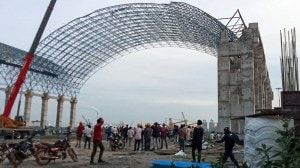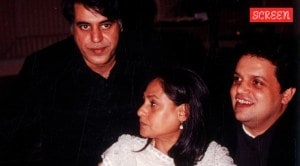Anatomy of Govt’s final negotiations with the hijackers
NEW DELHI, JANUARY 3: They seem to be willing.'' After a tension-filled night of negotiations in Kandahar, Joint Secretary Vivek Katju was...

NEW DELHI, JANUARY 3: They seem to be willing.” After a tension-filled night of negotiations in Kandahar, Joint Secretary Vivek Katju was able to inform External Affairs Minister Jaswant Singh on the satellite phone shortly after 5 in the morning on Friday that the hijackers were willing to release all the hostages in exchange for three militants and a safe passage.
Singh, who had been monitoring the negotiations along with Foreign Secretary Lalit Mansingh, informed Prime Minister A.B. Vajpayee of the development. According to highly placed Government sources, an earlier breakthrough came on Thursday afternoon when the negotiators persuaded the hijackers to settle for the release of seven militants.
New Delhi had even given the go-ahead but the hijackers suddenly turned hostile, insisting on the release of all 36 militants. Intelligence officials told South Block they had received information that the hijackers were getting their instructions from elsewhere, which is why they had gone back on theirword.
It is interesting to note that when the negotiations almost broke down on Thursday, Taliban Foreign Minister Wakil Muttawakkil played a crucial role and stepped up pressure on both New Delhi and the hijackers. He is reported to have taken an active part in the negotiations till late in the night and was instrumental in settling the final deal.
Soon after Katju’s phonecall, Vajpayee convened an early morning meeting with senior intelligence officials. The Prime Minister was given details of all Indian passengers on board: a majority were from the middle class and for many, this had been their first trip abroad. There were several small businessmen on board and the Government would have to be very cautious while dealing with the situation, the Intelligence officials said.
The matter was delicate and a decision had to be taken soon as the Government was under considerable pressure from all quarters, including its allies in the coalition. However, there were senior Intelligence and security officialswho felt that letting even three militants go would adversely affect the morale of the security forces in Kashmir and could give a boost to terrorism int he Valley. At the same time, they admitted that storming the aircraft was a risky option. The hijackers too were armed with grenades: storming the plane could result in heavy casualties, they said.
The Prime Minister took a second look at the dossier of the hostages prepared by them and it was decided that the three militants would be set free. A meeting of the Cabinet Committee on Security was convened at the PMO, where the decision was formalised and it was decided to send the External Affairs Minister to Kandahar.
The Home Ministry activated its officials, informing Jammu to prepare Masood and other jailed militants for release. Their legal papers were to be put in order on a priority basis. Foreign Secretary Lalit Mansingh was told to get in touch with the Ambassadors of countries whose nationals were on board and tell them of the move. A specialAlliance Air Boeing 737 was readied at the Palam Technical Area. Jaswant Singh, accompanied by a Director of the MEA boarded the plane, all the while talking to Katju on the Iridium satellite phone through which news of the breakthrough had first come in.
A few minutes later, the three released militants were brought in by Home Ministry officials and taken to the rear of the aircraft.



- 01
- 02
- 03
- 04
- 05




























